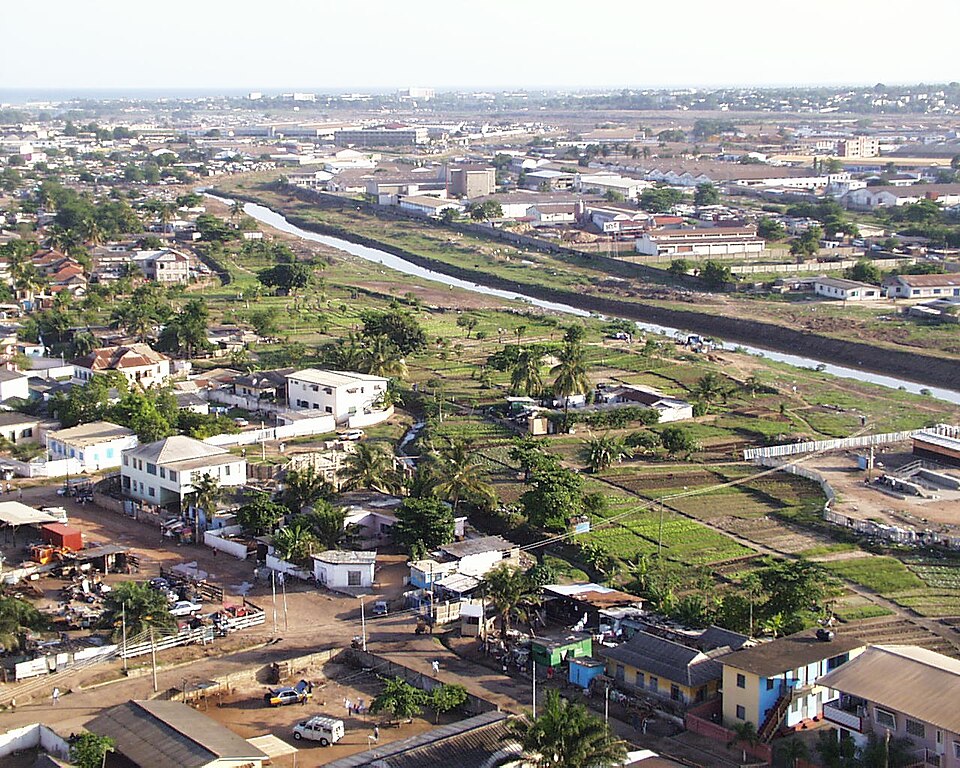From its bustling markets and historic landmarks to its burgeoning tech scene, the capital of Ghana is a dynamic center of economic and social activity. However, like many rapidly growing cities in the developing world, Accra faces significant challenges related to urban planning. The city’s growth has often outpaced its infrastructure development and planning capacity, leading to a complex landscape of issues ranging from traffic congestion and inadequate housing to sanitation and environmental degradation.
The Rapid Rise of an Urban Giant:
Accra’s population has exploded in recent decades, fueled by migration from rural areas seeking better economic prospects. This rapid urbanization has placed immense pressure on the city’s infrastructure and resources. The influx of people has resulted in a significant increase in informal settlements, where housing is often substandard and access to basic services is limited.
Key Challenges in Accra’s City Planning:
Several key challenges contribute to the complexities of city planning in Accra:
- Traffic Congestion: As the number of vehicles on the road continues to rise, Accra’s roads are increasingly congested. This leads to significant delays, economic losses, and increased air pollution. Inadequate public transportation options and a lack of well-planned road networks exacerbate the problem.
- Inadequate Housing: The demand for housing in Accra far outstrips the supply, leading to overcrowding and the proliferation of informal settlements. Affordable housing options are limited, forcing many residents to live in inadequate and unsanitary conditions.
- Sanitation and Waste Management: Accra struggles with poor sanitation and waste management practices. Improper waste disposal leads to environmental pollution, health hazards, and the blockage of drainage systems, contributing to flooding.
- Flooding: Accra is prone to flooding, particularly during the rainy season. Poor drainage systems, inadequate waste management, and the encroachment of development on waterways contribute to this recurring problem.
- Land Use Planning: The lack of effective land use planning has resulted in haphazard development and conflicts over land. This makes it difficult to plan and implement infrastructure projects and undermines efforts to create a more livable and sustainable city.
- Enforcement of Regulations: Weak enforcement of building codes and planning regulations has further contributed to the city’s challenges. Developers often disregard regulations, leading to substandard construction and environmental degradation.
Efforts to Improve City Planning:
Despite these challenges, efforts are underway to improve city planning in Accra. The government, in collaboration with international organizations and local stakeholders, is implementing various initiatives aimed at addressing the city’s urban challenges:
- Infrastructure Development: Investments are being made in road construction, public transportation, and drainage systems to improve connectivity and reduce congestion.
- Affordable Housing Initiatives: The government is promoting affordable housing projects to address the housing deficit and improve living conditions for low-income residents.
- Waste Management Programs: Efforts are being made to improve waste collection, recycling, and disposal practices to reduce environmental pollution and health hazards.
- Drainage Improvement Projects: Drainage systems are being upgraded and expanded to mitigate flooding and improve sanitation.
- Land Use Planning Reforms: Reforms are being implemented to improve land use planning and ensure orderly development.
- Strengthening Enforcement: Efforts are being made to strengthen the enforcement of building codes and planning regulations to ensure compliance and prevent environmental degradation.
The Path Forward:
Accra’s complicated city planning issues call for a multifaceted strategy that includes:
- Strong Political Will: Political commitment and leadership are crucial to drive urban planning reforms and allocate resources effectively.
- Community Engagement: Engaging communities in the planning process is essential to ensure that projects are aligned with their needs and priorities.
- Capacity Building: Investing in the training and development of urban planning professionals is critical to ensure that the city has the expertise to address its urban challenges.
- Innovation and Technology: Embracing innovative technologies and approaches can help improve urban planning and management.
- Sustainable Development: Prioritizing sustainable development principles is essential to ensure that Accra’s growth is environmentally sound and socially equitable.
Accra’s future depends on its ability to effectively address its urban planning challenges. By implementing comprehensive and sustainable solutions, the capital of Ghana can transform itself into a more livable, resilient, and prosperous city for all its residents. The journey will be long and complex, but with strong leadership, community participation, and a commitment to sustainable development, Accra can realize its full potential as a vibrant and thriving urban center.
